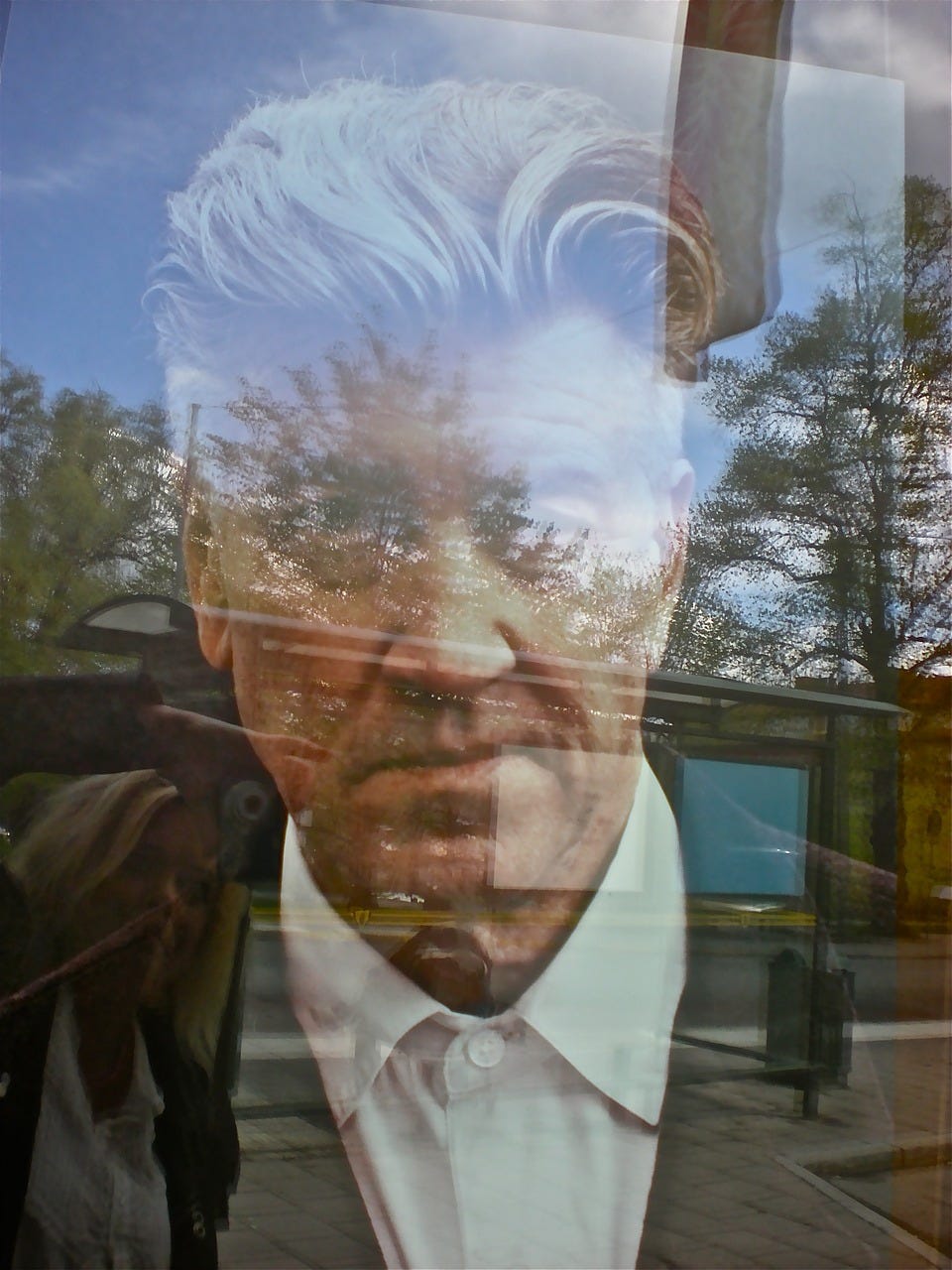You don't need to be a master storyteller, but you do need to tell stories
David Lynch has timeless advice on how to prepare for your next technical presentation or interview.
Have you ever volunteered to give a lunch & learn presentation, and then the day before you realize you have no decent icebreaker or anecdote to include? I’ve been there. The worst next step as an extrovert and just winging it (points to self). Those riffs end up being utterly forgettable.
“Help, I’ve got nothing!”
My artistic work has never resembled the surrealism of renaissance man David Lynch, but he has been a huge influence on me. His style is so unique that it has its own name—Lynchian. Students, critics, and journalists often ask him where ideas come from:
I always say ideas are like fish. And any good fisherman will tell you the best way to catch fish is to go fishing. —David Lynch
It doesn’t matter if a fishing trip happens in a comfortable chair, in the shower, or in the wild. The point is getting in the habit of actively opening your mind. I hesitate to call this stuff advice, but I’ll tell you two types of fishing tips that have worked for me.
Sometimes you know you need to come up with an intro or segue for work presentations or interviews or corporate websites, but your story tank is absolutely empty.
[1] Get yourself outside where you can see nature. It doesn’t need to be an empty trail or a park, but try to avoid interacting with anyone. There’s something about the natural environment that stirs up ideas.
If you’re loitering at a bus stop, pretend it’s your imagination station. Stare at cloud shapes and patterns. Squint your eyes until familiar shapes become blurred and abstract. What do those distorted blobs make you think of? Pets you’ve had, places you’ve traveled…your mind will wander and some random thought will be worth jotting down.
[2] Practice writing, even if you never publish. Write a love story. Write a mystery. Write an adventure. I’m an awful fiction writer. That’s not false modesty, I’m truly terrible at it. So I make up true stories—I write about what I know. I write nonfiction stories set in a “boring” industry like a planning department or at a public hearing.
They say nonfiction can be as fresh today as “plays in the park” storytelling in the ages before us. Whoever they are, I’ve seen them proven correct.
“Does my story need a plot?”
When I say plot you might be thinking of a long, detailed, and creative effort. Something for the English majors, not the technical professional. Plot is simply a sequence of events that ends in a climax. It’s the What of your story, and it can be the thing that wakes up the person in the back row, or startles your supervisor and makes them listen in spite of themselves.
An interview, webinar, or lunch & learn presentation only needs a short story. But you absolutely need a plot, because plot sells stories. Plot is the reason the audience remembers you long after you leave the room, and lack of plot is the reason no one cares about your story. You don’t need to be a master of language. The audience will overlook clumsy narrative when they’re interested in what you’re sharing.
Good writing is as common as clam shells; good stories are as rare as statesmanship. —Frank Munsey
Embrace simplicity. You aren’t world-building for a Netflix original series. Your plot needs to be simple enough for the context of a short story, because you’re working in constrained time and space. I mean I do hope some of my readers write screenplays for a film series—maybe it’s you. Simplicity will make you more likely to follow through instead of skipping stories.
“Show me someone else doing it.”
I’ll leave you with two examples. These each have a direct connection to urbanism, but that’s not a requirement. I once opened a project interview with a story about the first time I broke Allison’s arm. Anyway, watch these short videos.
This guerilla gardener is making London greener, one plant at a time.
This man can barely walk, but can ride a bicycle.
You don't need to be a master storyteller, but you do need to tell stories. What are you writing and talking about?


